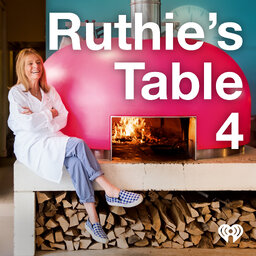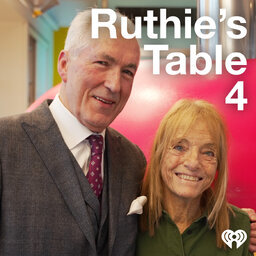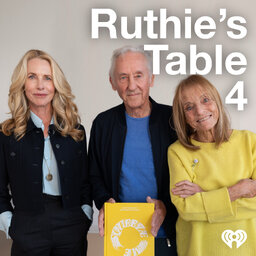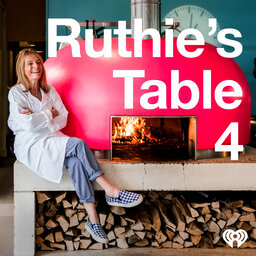From The Archive: Nancy Pelosi - Part 2
We have just one week until the new series of Ruthie’s Table 4 starts on the 22nd October!
And in just 21 days, the U.S. Presidental election will be underway.
This week we are revisiting an episode from Series 2 with former Speaker of the House Nancy Pelosi.
Considered the most powerful woman in American political history, she recalls how her five children would help her prepare dinners for the Democratic Party in the early days of her political career, her memories of childhood meals in Baltimore, and her love of everything chocolate.
Ruthie’s Table 4, made in partnership with Moncler.
In 1 playlist(s)
Ruthie's Table 4
Welcome to Ruthie's Table 4 hosted by Ruthie Rogers, co-founder and chef of The River Cafe in London…Social links
Follow podcast
Recent clips

Bonus: What’s New At The River Cafe
07:55

Jeremy King
38:16

Bonus: Laurene Powell Jobs In Conversation With Ruthie Rogers & Ed Ruscha
32:28
 Ruthie's Table 4
Ruthie's Table 4